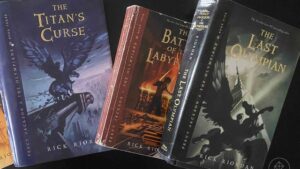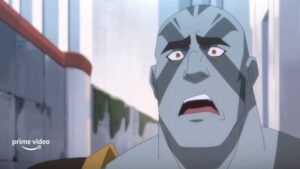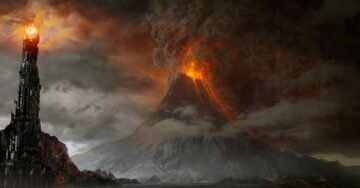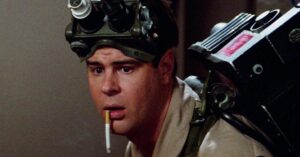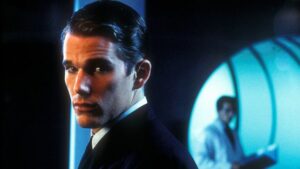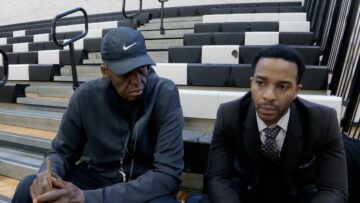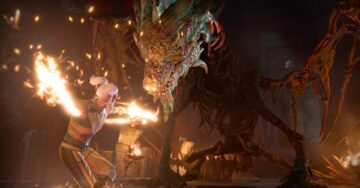At the end of 2012’s The Dark Knight Rises, writer-director Christopher Nolan leaves Bruce Wayne (Christian Bale) far from his traditional crime-fighting quest. He’s seemingly freed himself of the physical and psychological burden of being Batman. Now he can relax, shoot knowing glances at Alfred (Michael Caine) from across a café, and get tipsy around Europe with the Woman Formerly Known As Catwoman (Anne Hathaway). Meanwhile, back in Gotham City, former cop John Blake (Joseph Gordon-Levitt) discovers the Batcave beneath the rebuilt Wayne Manor. Blake has spent the entire film being promoted as the closest thing to Batman’s heir apparent, from his revelation that he deduced Bruce Wayne’s secret identity to the end reveal that his legal name is “Robin.” As the credits hit and Hans Zimmer’s score blares, he ascends to take on the mantle.
And then the series is over. Not paused until the next sequel or spinoff, not nominally wrapped until a credits scene setting up a new branch of a franchise, but over. After perhaps the biggest ending tease in modern superhero films that doesn’t involve Captain America’s shield, Christopher Nolan’s Dark Knight story concludes, with no intentions for a revival or a continuation. In the age of expanded universes and multiplying timelines, that isn’t just rare, it’s purely singular. The Dark Knight Rises came out a full decade ago, and it marks the last time a major superhero story was allowed to definitively wrap up.
Batman films always tend to feel like they’re from a different dimension, even though they have deeply influences on the genre around them. The fairy-tale fever dream of Tim Burton’s Batman Returns in 1992 and the toyetic glowstick wonderland of Joel Schumacher’s Batman & Robin in 1997 seem like cases of wild abandon instead of studio blockbusters, especially by comparison with 2000’s fairly subdued X-Men. Nolan’s trilogy is hyper-focused on George W. Bush-era politics. They’re films built around the intricacies and moralities of terrorism and surveillance states, made back when the nascent Marvel Cinematic Universe was focused on relatively uncomplicated Good vs. Mostly Evil fantasy.
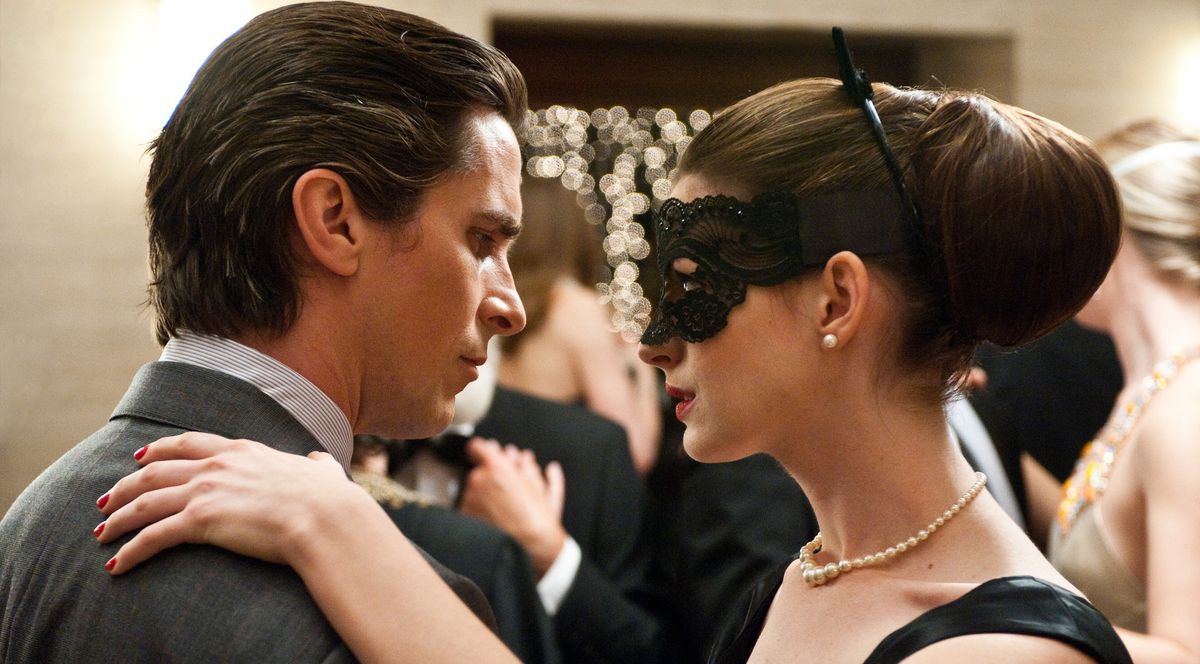
The Dark Knight Rises came out the same summer as Marvel’s The Avengers, and with Rises serving as the concrete finale of one story, it’s hard to not see it as a kind of passing of the torch between two series that defined their genre. The Avengers marked a major expansion point for the MCU, ending the prologue of Phase One and setting up a series where nearly every subsequent entry would be deeply connected to the others.
Soon afterward, Zack Snyder’s Man of Steel harkened the arrival of the DC Extended Universe, which included a new Batman who had to coexist with the comic-book reverie Nolan had been so eager to ground. For the first time, a live-action Batman rubbed shoulders with the heroes who hung out outside the Gotham city limits. With varying degrees of success, expanded universes popped up everywhere, from the Fast & Furious films to Universal’s abortive Dark Universe series about horror icons. In the move toward films that primarily existed to set up future films, the Dark Knight trilogy seemed like even more of an oddity among its peers.
Because from that point on, even when other superhero movies seemed to end, and their leading characters returned to some point of equilibrium, the loose ends were never entirely tied up. Even if they seemed to be, the next movie in the series would eventually untie them again. By the time Fox’s X-Men series was swallowed up in the merger with Disney, it was a messy blend of timelines, spinoffs, and soft reboots. 2017’s Logan did offer a farewell for Wolverine, the mutant who had shouldered the X-Men series for 17 years, and for Hugh Jackman, the actor who never dropped out of that series, even at its clumsiest.
But even that supposedly definitive ending was intended as a new beginning. Dafne Keen, who played the film’s young mutant Laura, revealed that the studio had been planning a sequel. And with films like Dark Phoenix, Deadpool 2, and New Mutants coming out afterward, it became clear that Logan was merely a send-off for a character, rather than the series’ grand coda. Now, with rumors of Fox’s X-Men showing up in the MCU’s Multiverse of Madness, we might be readying for even more glimpses into their disorienting realities.
Other series that seemed to end, like the separate Sam Raimi and Marc Webb Spider-Man series that preceded the character’s induction into the MCU, were both meant to continue before behind-the-scenes pressure forced course corrections. Those movies’ dueling Peter Parkers eventually turned up again in Spider-Man: No Way Home, a film that further illustrates Disney and Marvel Studios’ current assurance that not only are they the main export of superhero dreams in the present, they have your nostalgia on lock, too.
Even pre-Nolan Batmans aren’t safe. Michael Keaton, the star of Tim Burton’s Batman movies, is set to return to the role in the upcoming film The Flash, and will likely replace Ben Affleck as DC’s core Batman. Whatever story Schumacher tried to tell in Batman & Robin was meant to continue in a fifth series entry (called Batman Triumphant or Batman Unchained) before the project was shuttered. There’s also the Batman from 2022’s The Batman, a new series we’ve been assured will stay in its own lane and not intermingle with the rest of the Justice League movies. So perhaps the next time we get the last chapter of a superhero story, it’ll be with Batman again.
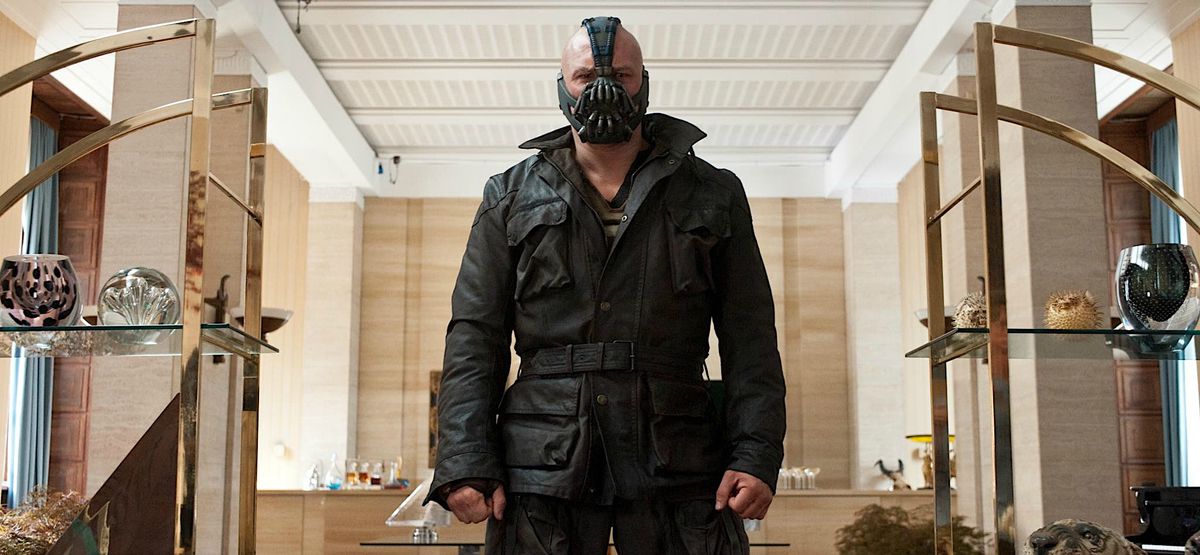
Until then, though, Nolan’s Dark Knight trilogy stands alone in permitting its story to wrap up, without plans for brand extensions. While other franchises have operated with a sort of “If they come, we will build it” ethos in regards to sequels, the creative forces behind The Dark Knight Rises have repeatedly said that film is the end of the story. Even though it earned the largest worldwide gross of its trilogy, usually a clear indicator that a sequel is on the way. According to Nolan, the open-ended nature of The Dark Knight Rises’ final scene was only open-ended “thematically,” and the story he wanted to tell had a cap on it. If you want the legend of the Dark Knight to continue, you’ll have to imagine it.
The key cast of Rises corroborate that, with Christian Bale affirming that his “services were no longer required” after the film, and Joseph Gordon-Levitt nixing any hope that his “Robin” might go on to lead a spinoff. Thanks to the immense box office and critical success of Nolan’s films, the director gained a considerable creative grip on Warner Bros., one that allowed him to end his series on his own terms. When 2013’s Man of Steel was being planned, and Warner execs floated the idea that it might serve as a nice addition to the Dark Knight’s universe, Zack Snyder hints that Nolan, working as the film’s producer, had the clout to shoot the idea down.
In the context of the series, the ending of Dark Knight Rises works. While comic book Bruce Wayne giving up his secret identity is often seen as a cardinal sin that defames what the character represents, the Wayne of Nolan’s trilogy constantly struggles with his superhero role. He’s torn between ensuring Gotham’s safety and the need to live a normal life, and by leading Gotham to believe that he’s sacrificed himself while also putting its welfare in the hands of someone he trusts, he gets to have it both ways. Gotham now has the legendary symbol of Batman to inspire hope, a new Batguy to make sure that people don’t jaywalk or whatever, and Bruce can wake up in the morning knowing that he isn’t gonna get pummeled by dudes in clown masks that day.
In the context of modern franchising, it’s a little jarring. There’s definitely a no-stone-unturned approach to superhero worldbuilding in cinema, one that all but promises that every comic book daydream you’ve had will one day enter the theater. Though we’ve moved on from running through Batman’s rogues gallery in descending A-to-Z list fashion like the ’90s films, the promise of infinite shared universes continuing with no closure in sight means that any plot, any reference, any adaptation should be possible. Robert Downey Jr. was the undisputed headliner of the MCU’s first 10 years, but even the death of Iron Man is now a hiccup in other people’s ever-unfolding adventures.
And yet, 10 years later, there’s no sign that Rises will serve as an unofficial “To be continued…” After a 19-year partnership, a spat with Warner Bros. over its simultaneous theater/streaming release model led Nolan to take his next film to Universal. Christian Bale’s tenure as the Caped Crusader seems tied to Nolan’s presence, and in the meantime, Bale isn’t hurting for gigs. He’s even joined the MCU, set to star in the fourth Thor film, Love and Thunder. Taking part in the colorful series is certainly a far cry from the gossip report that had Bale allegedly promising to “chain himself up somewhere and refuse to go to work” if he had to save Gotham alongside a Robin.
The Dark Knight Rises wasn’t the end of an era — it was something wholly unique, a confluence of storytelling technique and behind-the-scenes sway that gave a director and his team the power they needed to throw in the towel. Before this film, it didn’t matter if a director or star wanted to quit — the studio would just find someone else to put in the role. At this point, studios’ plan may be to never quit. In an age of team-ups and crossovers that are only limited by which IPs a given company holds the rights to or can negotiate for, cinematic superhero stories abound and endure, like stars ready to be plucked from the sky. All except for the one that went dark.
The Dark Knight Returns is streaming on HBO Max and is available for rental or purchase on Amazon, Vudu, and other digital platforms.
- "
- &
- About
- across
- afterward
- All
- allegedly
- Amazon
- among
- around
- available
- Biggest
- Box
- box office
- brand
- build
- cases
- cinema
- City
- closure
- coming
- company
- comparison
- continue
- Creative
- Credits
- critical
- Current
- day
- dc
- DID
- different
- digital
- digital platforms
- Dimension
- Director
- Disney
- dreams
- dropped
- ends
- Ethos
- Europe
- expansion
- EXPORT
- extensions
- FANTASY
- Fashion
- Fever
- Film
- films
- First
- first time
- focused
- Franchise
- Franchises
- full
- future
- George
- Giving
- good
- HBO
- HBO Max
- HTTPS
- idea
- Identity
- Included
- iron man
- IT
- joined
- Justice
- Key
- lead
- leading
- Legal
- Legendary
- Limited
- List
- major
- man
- Marvel
- Masks
- May
- model
- Modern
- more
- move
- movie
- Movies
- offer
- open-ended
- Other
- P
- Partnership
- People
- physical
- planning
- Platforms
- politics
- Polygon
- power
- present
- pressure
- producer
- project
- purchase
- quest
- realities
- release
- report
- REST
- Revealed
- ROBERT
- running
- s
- safe
- Safety
- Said
- Series
- set
- setting
- shared
- simultaneous
- So
- Sponsored
- States
- stay
- Stories
- Story
- storytelling
- streaming
- studio
- subsequent
- success
- summer
- superhero
- surveillance
- Terrorism
- The
- Theater
- Through
- time
- together
- torch
- traditional
- unique
- W
- Warner Bros
- Wayne
- Welfare
- What
- WHO
- woman
- working
- works
- worldwide
- years
